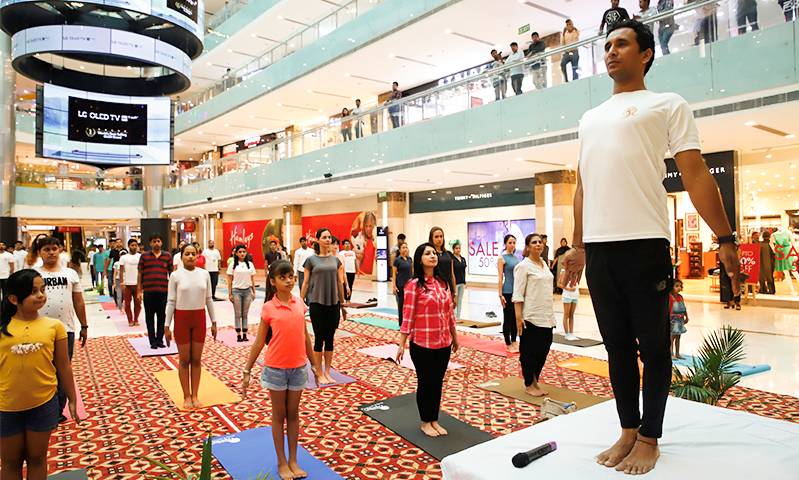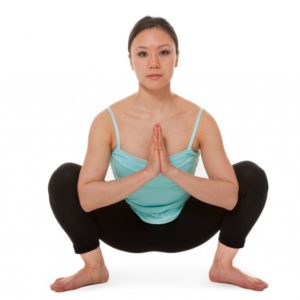Top 5 Health benefits of Malasana Garland Pose
Malasana comes from a Sanskrit word “Mala” meaning garland, thus translating to Garland Pose, in which the postural doer assumes the shape of a garland. Also, widely-known as the yoga squat, Malasana is regarded for stretching the ankles, groins, back, as well as strengthening the hamstrings, quadriceps, calf muscles, and lower back muscles. To its credit, there are many physical, mental, and spiritual benefits.
Here are the steps, modifications, and benefits of Garland Pose. Have a look at the section below.
Step 1: Stand in a Tadasana. Keep your feet as wide as your yoga mat.
Step 2: Come into a squat position (Bend the knees and lower the hips to the ground). Separate your thighs wider than your torso and keep the feet together.
Step 3: Slightly lean forward and bring your arms to the inside of your bent knees.
Step 4: Press the elbows against the knees and fold the hands in front of the heart.
Step 5: Keep the forearms parallel to the floor, shoulders relaxed, and spine straight.
Step 6: Transfer the weight into the heels and hold the pose for five breaths
Modifications and Variations:
1. In a squat position, if your heels don’t touch the ground, place them on a folded blanket or yoga block.
2. Beginner level practitioners and pregnant women can practice this pose against a wall.
3. For more balancing options, practice the pose with a chair
4. More advanced level students can bring the arms forward or can extend them behind to clasp the heels.
Tips For Safe Practice Of The Pose
1. Keep the pose movements slow and smooth. Avoid jerking, pushing, or forcing any move within the pose.
2. Lengthen the torso and keep the spine erect throughout the pose
3. Do not bounce the hips up and down because it can overstrain the knees and hip flexors
The Health Benefits of Malasana:
1. Tones the Lower Body: Owing to an inactive life, the legs gradually lose their suppleness and strength. Due to this, the lower back muscles and abdomen also suffer. Malasana is a yoga squat effective in toning the entire lower body. The pose works on the quadriceps, lowers the hamstrings, calf muscles, gluteal of the legs. Additionally, it strengthens the lower back muscles and core.
2. Helps with Elimination and Digestion: Those with a poor digestion may practice the pose for reaping the digestion enhancing health benefits of malasana. In the pose, as you squat, the pelvis descends leading to a downward flow of the Apana Vayu, which according to yoga traditions, helps in the elimination of the waste. The Garland Pose engages multiple body parts and stimulates metabolism that aids in healthy elimination and digestion. Additionally, the calming and grounding quality of garland posture assists in eliminating the negative thoughts from the mind and spirit.
3. Nurtures the Hips: The effects of modern living are highly damaging for the hips. As a result, the health of the body, spine, and back are compromised. The practice of Malasana results in hip opening and increased mobility in the hips, legs, and back. By unlocking the hips, the pose facilitates in an emotional release, as the hips are the dwelling place of intense feelings and emotions. The release of the pent-up emotions further leads to an improved sense of balance of the mind, body, and spirit.
4. Grounding Quality: In the Garland Pose, the body is close to the floor (specifically to the Muladhara Chakra which is located at the base of the spine, the pelvic floor). The Muladhara chakra is associated with the feelings of safety and trust. Therefore, the Malasana provides a powerful grounding and calming feeling to the practitioners.
5. Connection To Traditions: In Indian traditions, garland holds a greater significance. The garlands of flowers are used as a part of many Hindu rituals. The mala beads hold spiritual energy and are helpful aids in keeping the count during the meditation practices. The pose derives its name after a rich history because of its meditative, calming, and spiritual effects.
There are many more benefits of Garland Pose. Do practice this yoga posture to experience them all.
Meet Our Yoga Teachers

Devender Bhardwaj

Kulwant
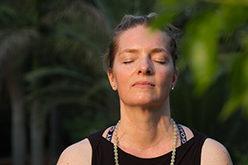
Gabriele (Gaby) Alscher
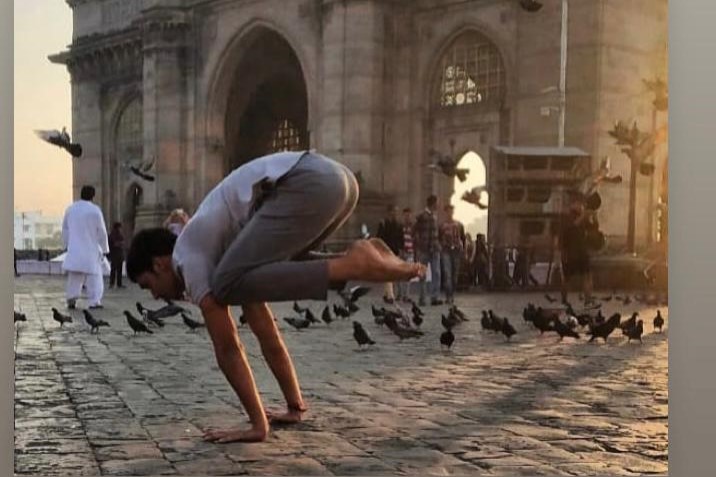
Amit Kumar
Blog Post
How to find the best yoga teacher training in Gurgaon
Learning yoga is a life-changing experience that would let you view the world with a different lens. It aims at self-...
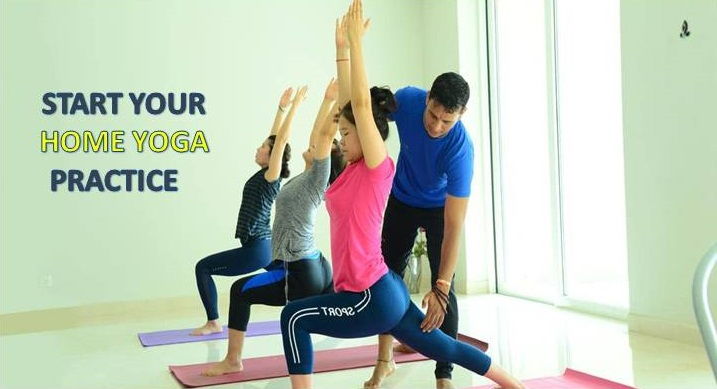
Which yoga style works best for your needs
Yoga is an ancient practice, which has its roots in India. The essential role of yoga is to create a powerful and mea...
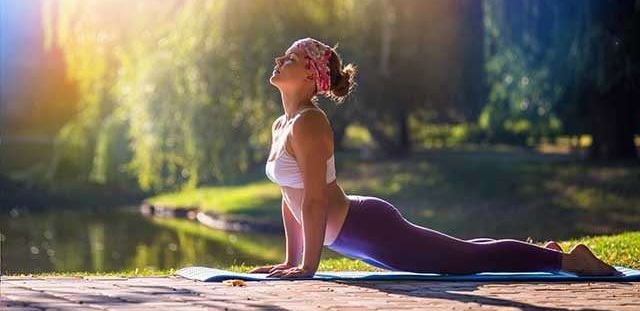
How to Find the Best Yoga Center in Gurgaon
Gurgaon is widely defined as one of the financial, technological, and industrial hubs of the country. Gurgaon is also...
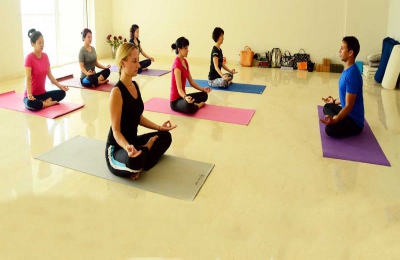
Aumyogashala 5th International Yoga Day Celebration
International Yoga Day is celebrated every year on the 21st of June to raise awareness among people about the benefit...
